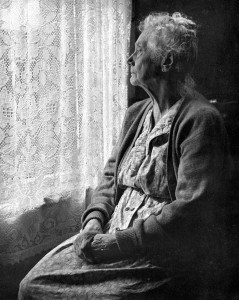Government Website Focuses On Elder Abuse
Growing older shouldn’t mean growing more vulnerable, but it often does.

(Photo credit: Wikipedia)The Administration on Aging, part of the U.S. Department of Health and Human Services, offers some excellent general information on the subject of elder abuse, while acknowledging that laws and terminology related to the problem vary considerably from state to state.
“Each year hundreds of thousands of older persons are abused, neglected and exploited,” according to the website. “Many victims are people who are older, frail and vulnerable and cannot help themselves and depend on others to meet their most basic needs. Abusers of older adults are both women and men, and may be family members, friends, or ‘trusted others.’
“In general, elder abuse is a term referring to any knowing, intentional or negligent act by a caregiver or any other person that causes harm or a serious risk of harm to a vulnerable adult. Legislatures in all 50 states have passed some form of elder abuse prevention laws.”
The site offers advice on possible “telltale signs” that such abuse is taking place:
- Bruises, pressure marks, broken bones, abrasions, and burns may be an indication of physical abuse, neglect, or mistreatment.
- Unexplained withdrawal from normal activities, a sudden change in alertness, and unusual depression may be indicators of emotional abuse.
- Bruises around the breasts or genital area can occur from sexual abuse.
- Sudden changes in financial situations may be the result of exploitation.
- Bedsores, unattended medical needs, poor hygiene, and unusual weight loss are indicators of possible neglect.
- Behavior such as belittling, threats, and other uses of power and control by spouses are indicators of verbal or emotional abuse.
- Strained or tense relationships, frequent arguments between the caregiver and elderly person are also signs.
“Most importantly, be alert,” the site advises. “The suffering is often in silence. If you notice changes in a senior’s personality or behavior, you should start to question what is going on.
“Remember, it is not your role to verify that abuse is occurring, only to alert others of your suspicions.”
